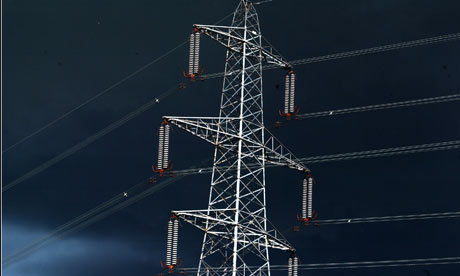 European energy agency could form super-regulatorMar 29, 2010 - Terry Macalister - The Guardian • Slovenia-based energy agency to start with 50 staff
Brussels is pressing ahead with plans to establish an energy agency which is seen as a prototype European regulator. The body could eventually restrict national policymaking but could also give important impetus to North Sea wind power and developing a European "supergrid". The European commission says it expects the Agency for the Cooperation of Energy Regulators to open for business by March next year. "There is a degree of hope that the work of the agency, while not being a European regulator as such, will get the commitment of national regulators such as Ofgem in the UK … [and] if it is successful then it will become the European regulator," said Philip Lowe, the EC's new director general for energy, in an exclusive interview. The agency is to be based initially in Ljubljana, the capital of Slovenia, and will have a staff of about 50, he said. The choice of location has raised eyebrows but Lowe said the agency should be judged on its work, not its whereabouts. The idea of energy being regulated by Brussels remains a highly charged political issue but members of the European Union are increasingly accepting the need for more international cooperation and integration to achieve energy security and combat climate change. Britain and other countries are keen to develop a huge network of offshore wind farms but realise they may need to deal with the problem of intermittent power by importing electricity generated from hydro or other power sources through an international supergrid of interconnected networks. Lowe says European Union member states have so far balked at giving up national sovereignty in energy regulation and their future acceptance of such an idea would be vital before a fully fledged European regulator was put in place. Under the direction of his boss, European energy commissioner Günther Oettinger, he is convinced countries must work more closely together. New bilateral arrangements between countries and regulators are in place to allow power to move through international pipelines. "Although in energy as much as any other area of European life, people talk about sovereignty a lot the reality is that all this (putting together of energy grids and other integration) does not work unless there is an acceptance that there are some things best done at European level, some best done at national level and some at local level." The British-born bureaucrat says it's a matter of who is best placed to review any particular aspect of work. "It is no use asking the European commission to investigate whether Tesco or Morrisons are competing in a certain area. National authorities know far more about land use and planning … but then if you are to deal with a company of the clout of Microsoft then it is something best dealt with here." Lowe is happy to make comparisons with competition issues because he has just switched from the competition to the energy directorate. Some UK groups, such as British Gas, could be suspicious of the new energy director given their criticism of the way Continental markets have been allowed to be dominated by very large, often partly-state-run groups, such as EDF of France. Lowe dismisses the criticism, pointing out that he and his former competition commissioner boss, Neelie Kroes, investigated these market failures and laid out the steps that needed to be taken. "The accusation we did not do anything is totally wrong," he said, pointing out that anti-trust legal action continues against various large Continental utilities today.
|
